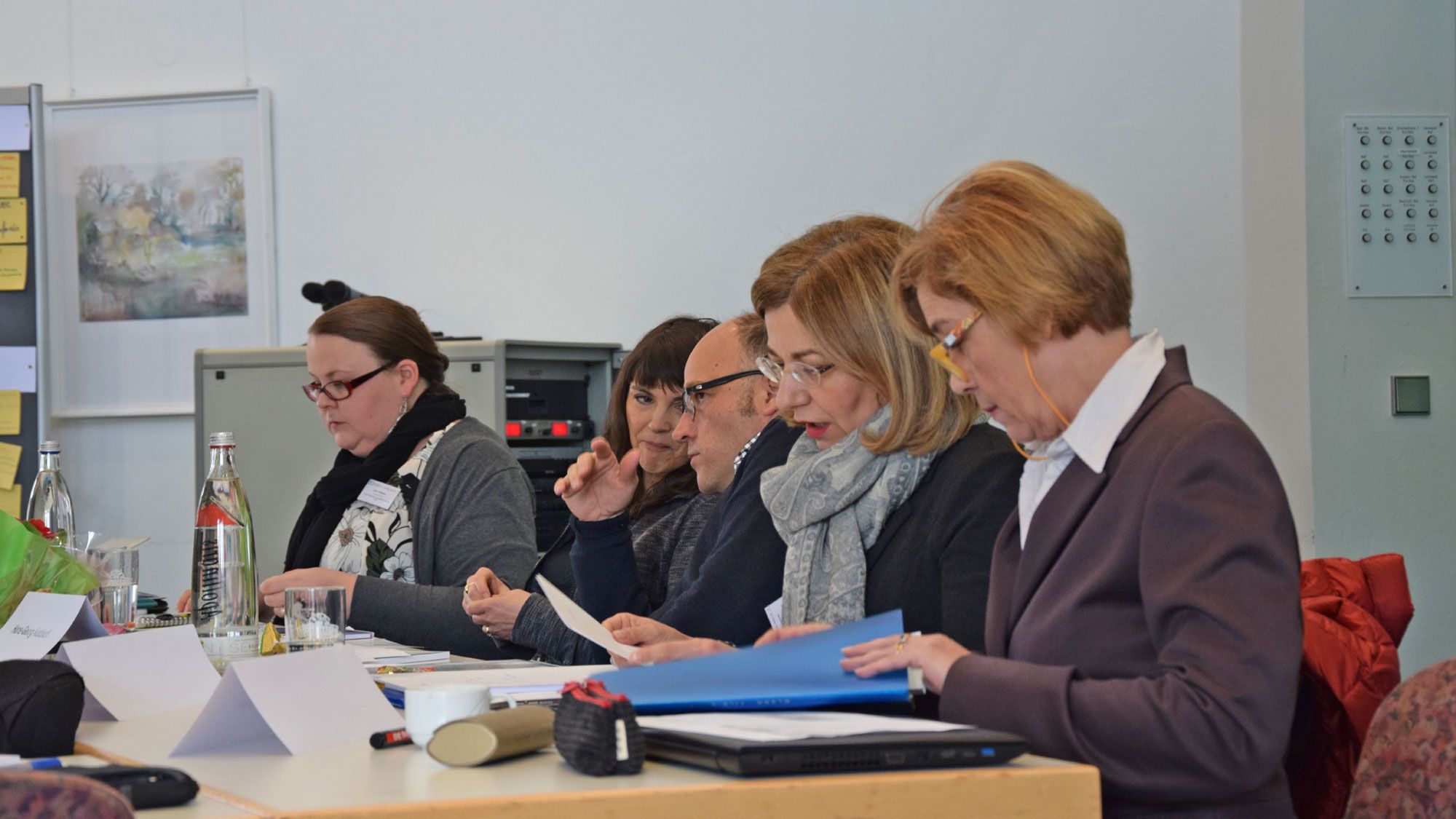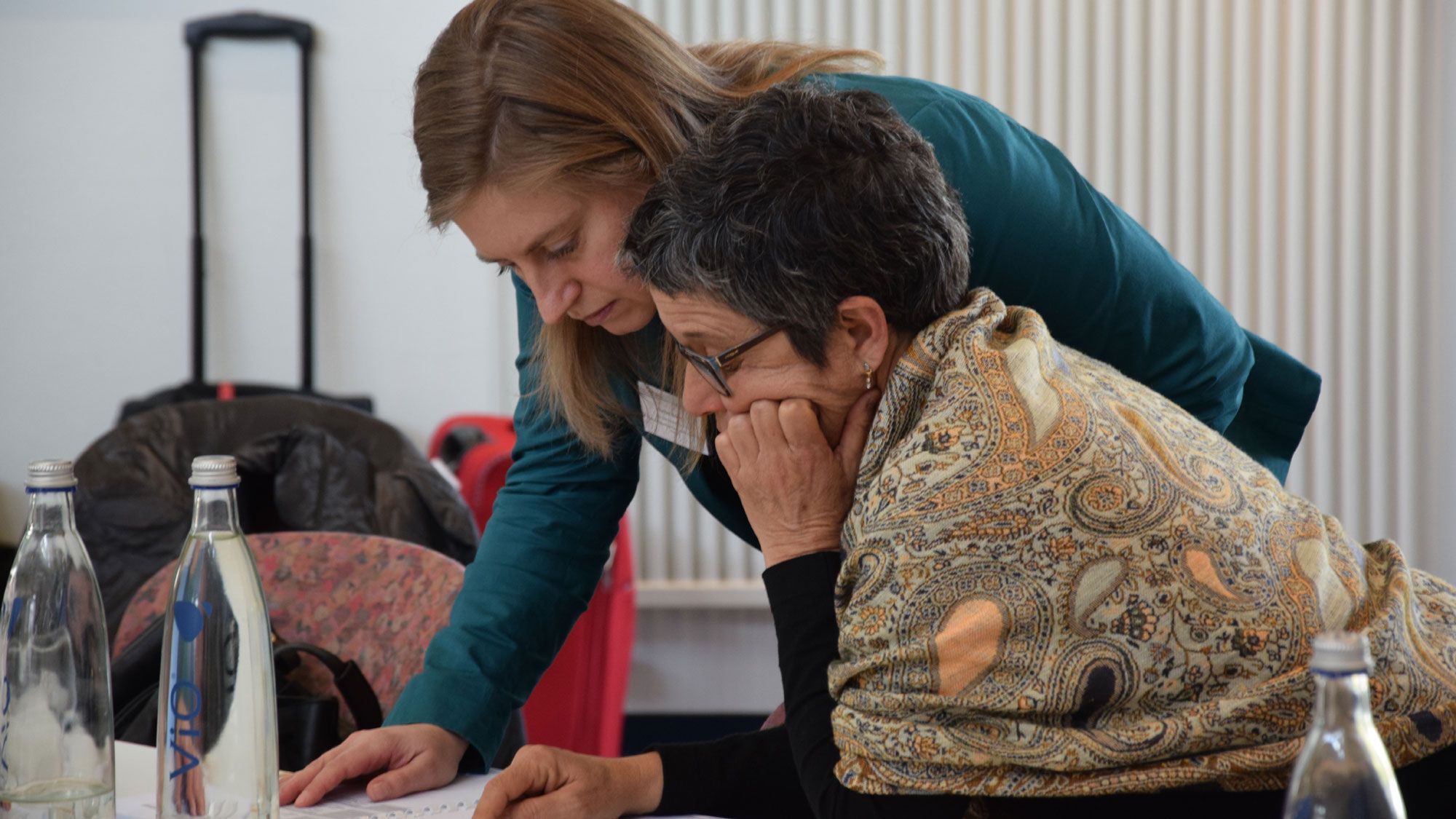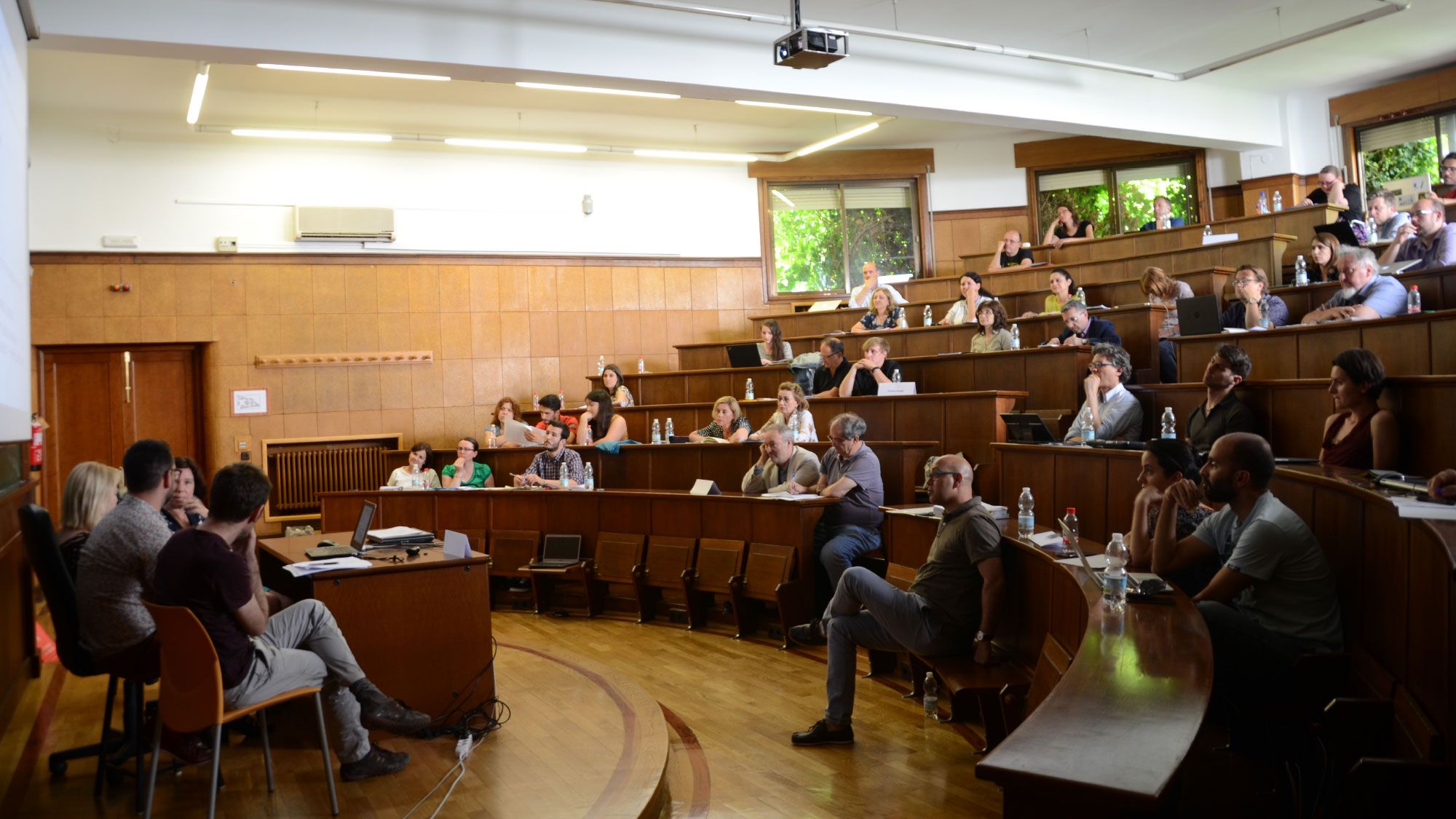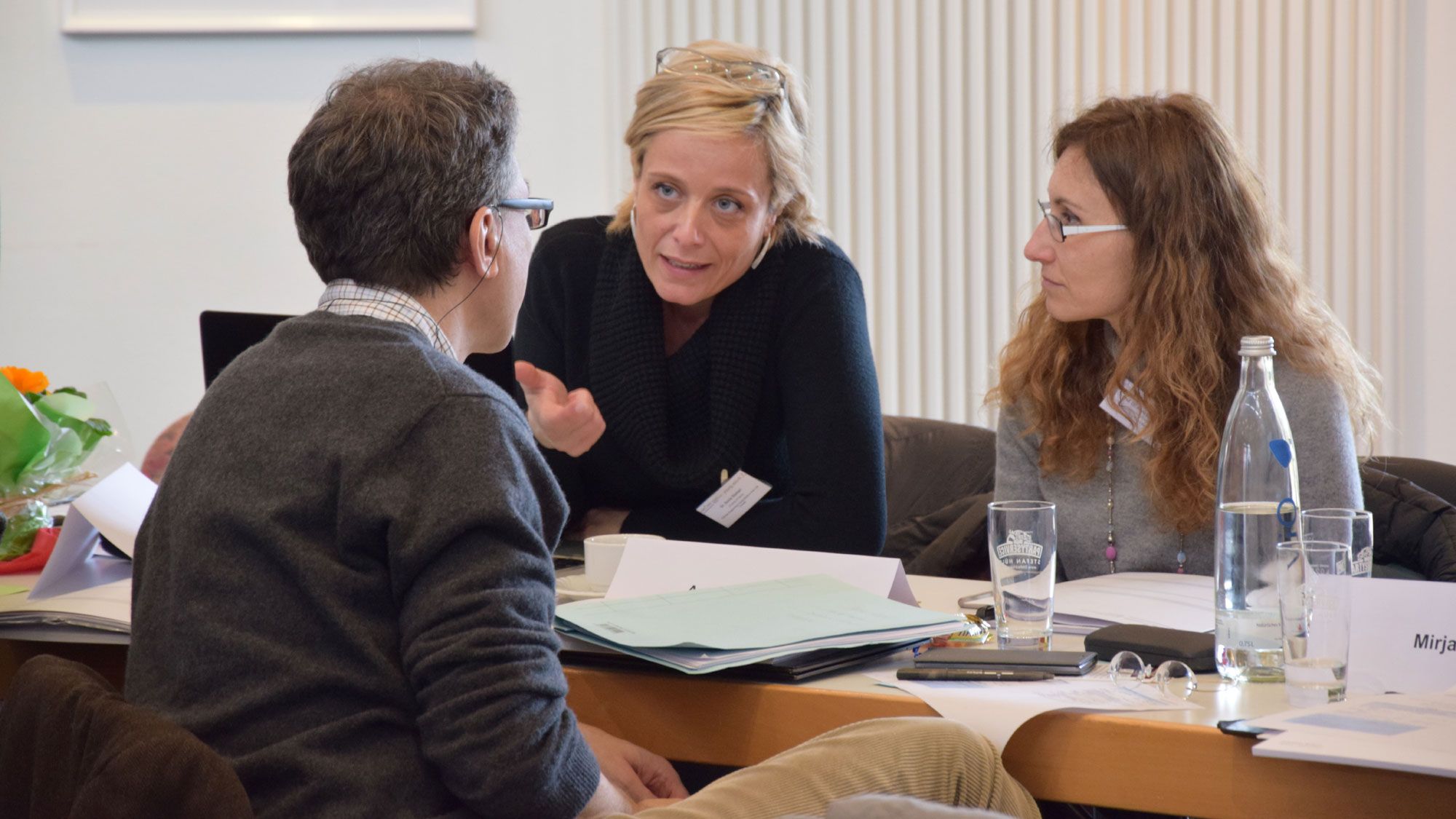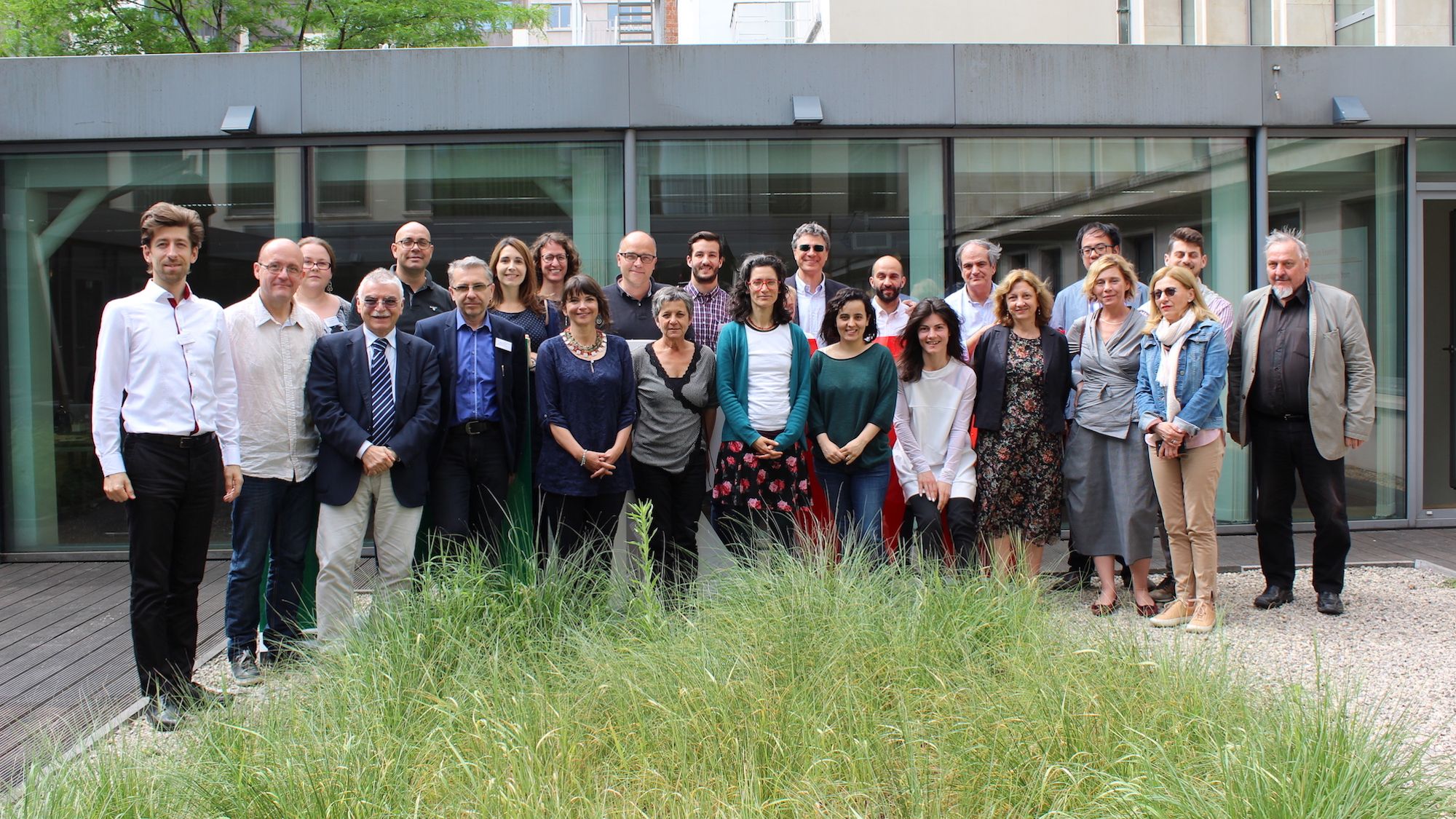Working Paper
In this section you can find Working Papers produced within the YOUNG_ADULLLT project documenting the research process as well as presenting preliminary results:
WP 2 - State-of-the-Art Report (PDF, 5,3 MB)
The State-of-the-Art Report conceptualises the research along the chosen theoretical perspectives, elaborated research hypotheses and adopted methodological principles. In terms of the contextualisation of research sites, the report shows vast existing differences among the participating countries within education and training practices, labour market, welfare structures as well as policy-making patterns. The report, therefore, serves as a guideline throughout these manifold relationships, informs on the underlying research principles, and structures the workflow in the particular Work Packages.
WP 3 - National Reports on LLL Policies (PDF, 7,3 MB)
The aim of the National Report on LLL Policies was to collect relevant data that allow an analysis of the various dimensions of the relationships of lifelong learning policies for young adults. Based on a document and content analysis it provided a set of indicators, which have been applied to scrutinize the complex modes of practices of the LLL policies, especially approaching their specific orientations and objectives, underlying success criteria, as well as issues of (mutual) compatibility and integration with other social policies at local level.
WP 3 - International Report on LLL Policies (PDF, 2,5 MB)
Within the International Report on LLL Policies, the previous National Reports have been synthetized and compared. A special attention was devoted to the contradictions and tensions of national policy strategies and their regional or local implementation as well as to their common issues and developments. The International Report thus assesses the impact of the policy measures on young adults in terms of their transferability and potentials to provide better access to learning experiences.
WP 4 - National Briefing Papers with national and regional data sets (PDF, 11,5 MB)
The National Briefing Papers conducted quantitative analysis of young adults' social and living conditions and analysed socio-economic data (macro data) aggregated at national and local level on different dimensions in participating countries. They provide insights into the multidimensional interplay between regional LLL policies and the living conditions of young adults and offer results from the socio-economic quantitative research and national and international data sets.
WP 4 - Cross-national and Cross-regional Report Quantitative Analysis (PDF, 2,0 MB)
The Cross-national and Cross-regional Report focused on the interplay at macro-, meso- and local level between Life Long Learning (LLL) policies, young people's living conditions and country and region specific contexts in promoting or deterring growth and social inclusion. The general objective was collecting and analysing quantitative data on the specific living conditions of young adults in regional contexts, thus considering regional specificities (for instance migration/mobility) in relation to LLL. Data on socioeconomic and socio-demographic context, education/training, labour market, social inclusion and participation, and health and well-being of the young adults was gathered from international, national and local sources.
WP 5 - National Qualitative Analysis Reports (PDF, 9,3 MB)
The National Qualitative Analysis Reports conducted interviews to examine young adults' perceptions of social expectations underlying policies and initiatives, of the complementarity between policies, local contexts and living conditions and individual life projects and styles as well as on young adult's competences acquired in non-formal and informal contexts and their perception of needs and potentials thereof. The Reports also conducted qualitative research through in-depth interviews with experts from policy, employment and training/providers in order to assess the interaction of LLL policies, young people's living conditions and country or region specific contexts (for instance migration/mobility) in promoting (or hindering) growth and social inclusion.
WP 5 – International Qualitative Analysis Report (PDF, 1,2 MB)
The International Qualitative Analysis Report provides a cross-national comparison regarding the impact of LLL policies on young adults. It draws on the national data sets and derives its conclusions from interviews with employers and young adults, as well as from relevant statistical findings. The Report first, provides a systematic overview of the young adults' life projects, their perceptions of LLL policies, the compatibility with personal interests and orientations and their possibilities on site to improve their learning effectiveness. Second, it explores to what extent and how living conditions of young adults mediate and influence lifelong learning policies, by means of analyses of interviews with experts.
WP 6 - National Reports on national strategies to govern the supply and demand of skills (PDF, 6,5 MB)
The National Reports analyse how countries and functional regions (FRs) govern the relationship (match and mismatch) between the supply and demand of skills and support the transitions of young people across the education, training, and labour market systems. The Reports aimed at identifying structures and main actors involved in the governance of skills system, and at evaluating the level of coordination between the governance activities across different areas and scales of government.
WP 6 - International Report analysis of skill supply and demand (PDF, 1,1 MB)
The International Report presents the analysis of skill supply and demand by synthesising the Reports on national strategies to govern the supply and demand of skills. It identified differences and commonalities between countries by systematising comparative evidence of modes of governance of the relationship between skills supply and demand at national and regional level.
WP 7 - Case Studies Reports regional/local level (PDF, 4,0 MB)
The Case Studies Reports aimed at analysing policies and programs at the regional and local level to identify policymaking networks that include all social actors involved in shaping, formulating, and implementing LLL policies for young adults. Reports focused on two selected regional policy measures with a specific attention to their contextual and relational dimensions and, adopting a narrative approach, in order to (re)construct the different patterns of networks and policymaking.
WP 7 - Cross-case and Cross-national Report (PDF, 2,2 MB)
The Cross-case and Cross-national Report provides insights on regional/local networks in LLL policy-making based on cross-case and cross-national analyses. It aimed at identifying patterns of policy-making networks involved in shaping, formulating, and implementing LLL policies for young adults as well as best practices of integrating LLL policies in economy, labour, education and individual life courses.
WP 8 - Comparative Analysis Report (PDF, 3,9 MB)
The Comparative Analysis Report sets out the cumulative results that are based on the preliminary work done in the previous research phases of YOUNG_ADULLLT. First, it presents the overall research questions that guided the work in the project and within its sub-studies; second, it discusses the main messages of the Report´s chapters, and third, it gives an overview of the central insights and reflections of the comparative analyses.
WP 8 - Final Report to Research, Policy, and Practice (PDF, 1,3 MB)
This report synthesises comparatively the main findings of the project, and draws out lessons for policy, practice and research. It is organised based on three categories of findings: the meanings and impact of LLL policies in and on young adults' life courses, and how the concept of vulnerability is operationalized; a comparison of the regional landscapes, their skills ecologies and the local living conditions of young adults; and the patterns of policy-making in these contexts. Drawing on all of these findings, the report concludes with a reflexive tool designed to assist policymakers in contextualizing their decision-making in local economic and social realities as well as in the lived experiences of young adults and their life projects.
WP 10 - Working Paper on Ethical Issues (PDF, 0,5 MB)
The Working Paper on Ethical Issues informs about the fundamentals of research ethics and provides orientation regarding project-specific ethical issues and requirements. It contains the central principles and guidelines adopted in the research project with a special attention to free and informed consent, transparent procedures and safeguards in research activities involving vulnerable subjects, balancing potential harms and benefits arising from research participation and to the importance of ensuring privacy and confidentiality.



